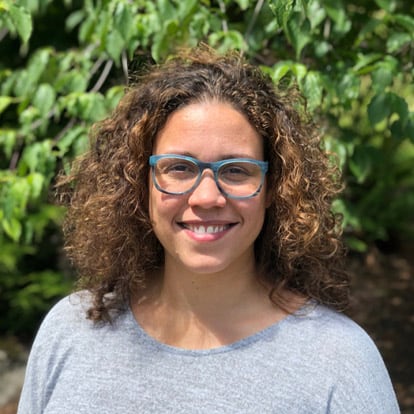Year of Listening

We are in a season of reckoning for education leadership in America. This is a catalyst moment of transition, pressure, desperation, exhaustion, redesign, and possibility. Public educators in America are standing at the precipice, not sure to jump into the unknown or retreat back from where we came. The leadership question now is, how did we get here?
I’m not quite sure the exact time when I finally started listening. There had been many messages and communication attempts. No matter how many times I heard them, it took me a while before I listened.
I heard about the microaggressions from colleagues. I heard people discuss their broken-heartedness. I heard the resignation announcements. And then the other announcement. And the other. And a few transition plans. I heard myself say [out loud] that I couldn’t believe what I was seeing and reading and hearing. I heard the board meeting comments. I heard the voices of discontent and attack through the words in emails. I heard about the openings. I heard colleagues talk about their application processes and rounds of interviews. I heard their interview feedback. I heard my interview feedback. And then I heard who got the jobs.
I heard the news about my father’s health. And I heard my son yell at me to put the computer away because I was always working. I heard the beautiful stories of ancestry, futurity, and liberation in my doctoral leadership workshop. I heard being called, Dr. Niccolls. I heard my parents say they were proud of me. I heard my daughter yell for me when I was on an evening work call, “Mom! Mom. Mom!! Mom. Mom!!!! Mom! Mom…”
This is not my circus. That’s what I told myself on the way home. Suddenly, that day, I listened. I continued home, releasing myself from an unworthy attachment and finally believing a community that was day in and day out showing me who they are. When I finally listened, I felt ashamed. I was misaligning my actions from my convictions. I was living my life at the end of someone else’s strings and sacrificing my family, my (educator) soul, and my health.
Zora Neale Hurston said, there are years of questions, and years that answer. This is a year of answers in my educational leadership journey. And many of us are finally listening. We stand on the edge and we hear it: the sounds of our mentors. The sounds of future generations. The sound of the genuine. The reason why we entered into the work. And then, many of us look around and see nothing familiar. We are lost. We have been consumed by the institutional machine and were unable to look and hear clearly, until now.
The COVID-19 global pandemic was a storm that dragged educational leaders to the edge, blew away all the distractions, and revealed the clarity of our communities, school boards, legislatures, and what people are really able to stand for and stand against.
The future of public education is dependent on if/how leaders at the edge will listen and respond. Some of us are stepping off the ledge, venturing out beyond what we can see, and finding our truth there. Some of us are retreating back, afraid of the risk. Some of us are stuck and unable to move or be moved.
Now is the time for us leaders, steadying on the edge, or out beyond, to shine our souls and find each other. To:
- Extend our hands, and connect.
- Find our footing in collective strength and know we are not alone.
- Hear each other and trust our wisdom so that we do not retreat or fall off the edge, but rather cross the threshold into the future of public education.
- Be wholehearted, unapologetic, and relentless in our pursuit of what is best for our young people and communities.
- Continue to listen to and trust each other.
- Believe our communities when they show us who they are, and listen for what they need us to be.
- Know where we stand, and regularly ask if we are where we need to be.
- Be willing to act as soon as we know what we need to do.
The future of our young people depends on the ability of our educational leaders to do what is right, just, and worthy.
Resources to Continue Your Leadership Journey
Here’s a place to start if you are searching for answers or need to clear the noise to hear the truth:
- Brene Brown and Courageous Leadership
- What Some Leaders Are Doing in Response to Public Outrage
- Making Space: Remixed. Dreaming, Dialogue and Healing in Classrooms
- LiberatED
- Center for Courage and Renewal
- Our Collective Lesson Plan [On Teachers of Color in this Moment]
- The Nap Ministry
- Dare to Lead
- Healing Leadership
- The Soul of Enterprise: Interview with Howard Hansen
- AASA Leadership Network
- ATN: Resources for Agitators
- Irresistible: Archive for Healing and Social Justice
- The Return: Leading Systems Towards Healing with Love with Kristi Dominguez and Ellen Dorr
For more, see:
- Yoga Ed. Addresses Trauma Through Teacher, Student Self-Care
- Helping Teachers Prioritize Social-Emotional Learning
Stay in-the-know with innovations in learning by signing up for the weekly Smart Update.







0 Comments
Leave a Comment
Your email address will not be published. All fields are required.